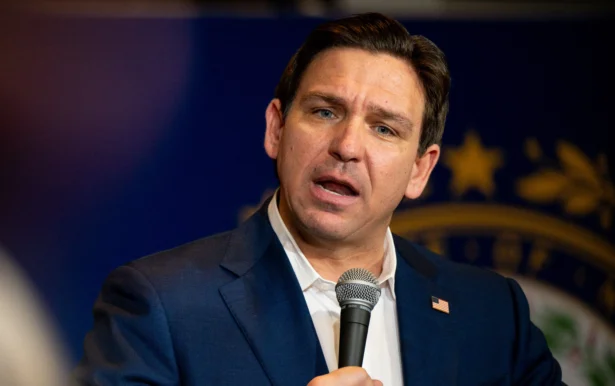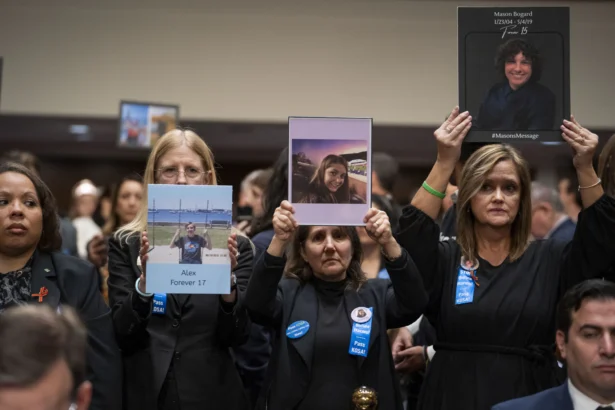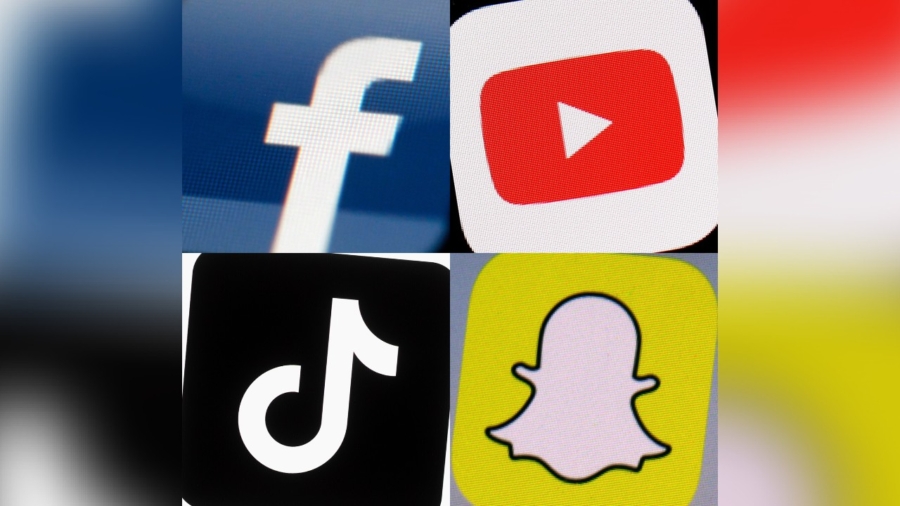Florida senators have moved forward with a proposed bill to ban people under 16 from using social media platforms with addictive features, regardless of parental approval.
Gov. Ron DeSantis has expressed concerns about the legality of the move.
The Florida House overwhelmingly approved the proposal in a 106-13 vote last month, and the Senate’s Judiciary Committee advanced the bill on Feb. 2 with a 7-2 vote. The policy doesn’t specifically name which platforms would be affected but has broad parameters on any social media site that tracks user activity.
Under the legislation, any platform that allows minors to upload material, interact with others, and use addictive features designed to cause excessive or compulsive use would be banned.
Monitoring personal data for minors up to the age of 18 would also become illegal, as would collecting, selling, or sharing geographic information on underage users.
The bill’s sponsor, Sen. Erin Grall, a Republican, said social media platforms and the current practices used by Big Tech companies pose such a significant threat to children that they cannot be ignored any longer.
“If we as a government have identified this harm, that is beyond the magnitude of really any one person to get in the middle of and control,” she said.
“This is beyond any one family and anyone parent-child relationship.”
Supporters of the policy say serious action is needed to protect children from social media platforms with addictive features, such as infinite scrolling. The features have been likened to other addictive and harmful habits such as smoking or gambling.
Government Censorship?
Opponents argue that a ban overrides parental rights, violates the First Amendment, and ignores social media’s positive aspects, such as fostering a sense of community.
Kara Gross, legislative director and senior policy counsel for the ACLU of Florida criticized the bill as government censorship.
“SB 1788 is a government censorship bill, and it is aimed at stifling the freedom of expression online and requiring all users, including adults, to verify their age by providing a photo ID or other age verification documentation,” she said.
Mr. DeSantis is also concerned about the legislation’s legality and whether it would violate the constitution.
He hasn’t committed to signing the proposed ban as it’s presently written over concerns about its “breadth” and whether it would pass legal review. Similar bans in other states are being challenged in the courts on First Amendment grounds.

Impacts of Social Media Under the Microscope
An array of experts have sounded the alarm over the harmful impacts of social media for years, especially when it comes to the effect it has on children and teens. Last year, U.S. Surgeon General Vivek Murthy issued an advisory expressing concerns about the potential impact of social media on the mental health of children and adolescents.
However, it appears these warnings have had little effect. A December Pew Research Center survey showed that many U.S. teens are using social media platforms at high rates, despite growing concerns about the negative effects on their mental health.
Other states have considered similar legislation to what is being proposed in Florida, but most have not asked for a total ban.
Meta, the company that owns Facebook, Instagram, and other social media platforms, has urged the House to seek another solution, such as legislation passed at the federal level rather than individual state laws.
The social media giant has also suggested measures requiring parental approval to download apps rather than an outright ban.
Meta representative Caulder Harvill-Childs told the Florida House Judiciary Committee that banning social media platforms for all young people would cause more harm than good in the long run.
“Many teens today leverage the internet and apps to responsibly gather information and learn about new opportunities, including part-time jobs, higher education, civic or church gatherings, and military service,” he said.
“By banning teens under 16, Florida risks putting its young people at a disadvantage versus teens elsewhere.”
Social Media Platforms Under Fire
All major social media platforms have recently come under severe scrutiny over concerns about their negative impact on society. Meta CEO Mark Zuckerberg, along with the CEOs of SnapChat, Discord, TikTok, and X, formerly Twitter, testified before the U.S. Senate on child safety last month.

Some of the parents who attended the hearing told lawmakers that their children had been exploited, bullied, or molested online while using one of Mr. Zuckerberg’s many platforms.
The Meta CEO ended up apologizing to the families and parents of the children.
Unredacted sections of a lawsuit against Meta allege the social media juggernaut prioritized company growth ahead of the safety of its younger users.
In contrast, the company refutes these claims and says it has devoted a lot of time and resources to keep minors safe online.
The company has said it uses sophisticated technology, hires child safety experts, and shares information and tools with other companies and law enforcement to help minors stay safe online.
From The Epoch Times

